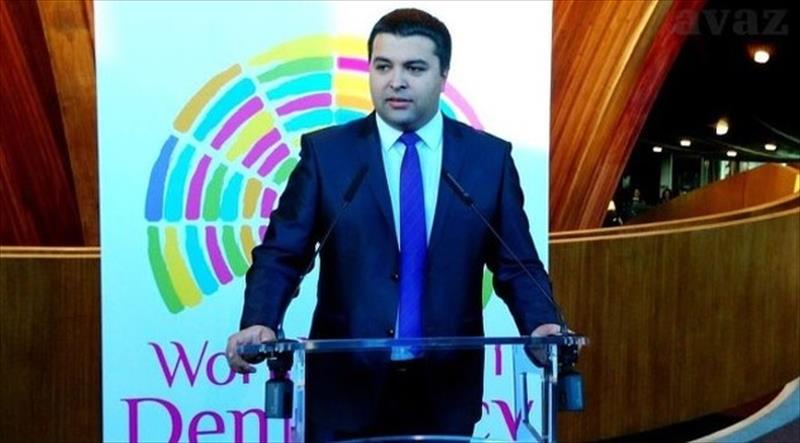Mirza Ustamujić was born in 1981 in Sarajevo where he graduated from the Faculty of Electrical Engineering, University of Sarajevo. In previous mandate since 2010 he was a member of the House of Representatives in the Parliament of the FBiH. In January he visited Brussels and Strasbourg in the framework of the EU Visitors Programme (EUVP), which aims to enable young leaders, potential leaders in government, politics, media and other fields from countries that are not EU members to visit EU institutions, and increase mutual understanding between professionals from outside the EU and their EU counterparts.
You recently returned from a visit to Brussels and Strasbourg under the auspices of the European Union Visitors Programme (EUVP) designed for young leaders from countries outside the EU. Could you please describe your experience?
The experience I gained in meetings with officials from the European Parliament, European Commission and the Council of Europe has benefited me in many ways. On the one hand, I learned about the decision-making processes involving representatives of nearly 30 EU Member States and had the opportunity to talk to them. On the other hand, I had the opportunity to monitor and draw conclusions from what I saw there and compare them to the decision-making processes in Bosnia and Herzegovina.
Lessons learned are useful and applicable, especially with regards to democracy and democratic values. The network of acquaintances and contacts made with officials in the EU institutions really makes the EUVP very special.
One of the objectives of the EUVP is to acquaint participants with the policies, achievements, plans and workings of EU institutions and to strengthen existing and establish new contacts. Which institutions did you visit and what kinds of contacts did you make?
Each participant of the EUVP programme is constantly in touch with the programme organizer at the EUVP Secretariat through the liaison officers in the Delegation of the European Union to BiH . Depending on the affinity or earlier suggestions made, the programme organizer arranges and directs the participant’s meetings. Accordingly, all the people I met were familiar with my biography and the country I come from, with my experience in the legislature and with the achieved results in certain areas such as youth or the fight against corruption, etc.
When it comes to the European Parliament, meetings were held with representatives of parliamentary groups, with elected officials who deal with relations between the EU and BiH, officials from the Political Department of Foreign Affairs, the Department for Relations with National Parliaments, the Department of Human rights and the Directorate for Economic Affairs.
In the European Commission, meetings were held with officials of the Directorate for Enlargement and Neighbourhood, the DG for Enlargement of the Western Balkans, the Directorate of Youth Employment, the Directorate for Development and Cooperation, the Directorate General for Regional and Urban Policy and with the Directorate for Education and Culture.
Meetings in the Council of Europe were held with representatives of the department that deals with issues of human rights and minorities, and very significantly with officials of GRECO, the Council of Europe member states in the fight against corruption.
After the visit, can you draw any parallels between the political, economic, educational, etc. systems in BiH and corresponding systems in the European Union? How can we improve and learn from the EU?
There are many differences. Bosnia and Herzegovina is a country in transition after years of a one-party system and it is in the process of building a democratic society. There are notable levels of corruption and unemployment, an inadequate education system unrelated to labour market needs and, in the not so distant past, a war in which the country and its economy suffered terrible damage.
If you add to all of this the politicians who have moved away from the people, not sincerely understanding their real needs, it is clear that the situation is quite complicated.
At its inception, the EU faced similar challenges. The situation in BiH constitutes an opportunity and its diversity is seen as an advantage. It is a path that Bosnia and Herzegovina needs to follow. I am convinced that young people have the capacity, and indeed the potential, to bring the country closer to other EU member states and enter the over 500 million people family.
How will this visit affect your future work?
The EU constitutes a family of Member States. This fact is particularly important for those emerging from transitional economies and seeking to join the union. The European Union potentially brings to BiH its wealth of experience, expertise and investment and it could help in acting on multiple levels to significantly improve the lives of citizens. This should be recognized and become a priority for all politicians.




